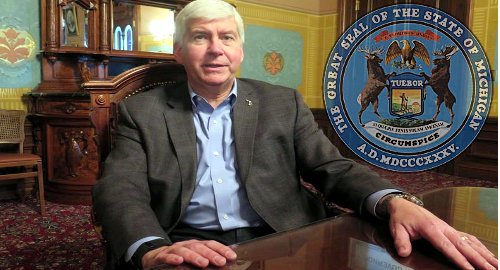 Michigan is poised to become the fifth US state to approve intrastate online gambling following a last-minute legislative effort.
Michigan is poised to become the fifth US state to approve intrastate online gambling following a last-minute legislative effort.
Late Thursday night, as the Michigan legislature looked to close out its 2018 session, the state House of Representatives’ HB 4926 online gambling bill – which was approved in June – suddenly appeared on the state Senate’s agenda. The bill was swiftly approved by a vote of 33-5 and sent back to the House, which reapproved the measure by a vote of 71-35.
The speed and relative ease with which the bill was approved was notable, given that Michigan’s casino industry is a mix of commercial and tribal operators that haven’t always seen eye-to-eye on this issue. So credit to state legislators who managed to successfully herd these stake-holding cats across the finish line.
Gaming tribes have long been wary of the state’s online proposals. The Michigan Lottery has been offering online draw tickets and instant win games since November 2014, a move that prompted some of the state’s gaming tribes to withhold revenue sharing payments to the state, on the grounds that the online lottery violated their gaming compacts.
BILL DETAILS
HB 4926, which still awaits the signature of Gov. Rick Snyder (pictured), would create a new internet gaming division within the Michigan Gaming Control Board (MGCB). This division would be authorized to issue online casino, poker and – pending passage of separate legislation – sports betting permits to any state-licensed casino operator.
Online license applications would cost $100k, and approved licenses would cost an additional $200k upfront plus $100k for annual renewals. Technology partners will pay $100k upfront and $50k per year after that.
The state will impose an 8% tax on online gambling revenue, with Detroit’s three commercial casino operators paying an additional 1.25% as a local share for the city. This local share was added to placate Detroit officials wary of supporting any measure that could eat into their casino revenue taxes, which account for a double-digit share of Detroit’s operating budget.
Federal law prohibits state governments from taxing tribal casino revenue, so tribal operators may need to amend their state gaming compacts to work out new revenue sharing arrangements if they want to join the online party. However, should that process prove too involved, the bill allows tribes to apply for online permits through the MGCB as commercial operators.
The issue of how many online ‘skins’ each casino will be permitted isn’t specified in the legislation, leaving this issue to the MGCB, which will have a year to craft its regulations. The bill also requires a minimum 15-month delay between Snyder affixing his signature and the launch of online operations.
CHALLENGES AWAIT
Assuming Snyder does sign the bill, the legislation will likely face a court challenge from the likes of the Sheldon Adelson-funded Coalition to Stop Internet Gambling (CSIG), on the grounds that Michigan’s constitution requires gambling expansion plans to be approved via a statewide voter referendum.
Michigan’s legislative success comes just as the industry is bracing for a rumored new opinion from the US Department of Justice on the scope of the 1961 Wire Act. Seven years ago this month, the DOJ issued an opinion that paved the way for intrastate online lottery and gambling operations, but scuttlebutt has it that the current DOJ is preparing to reverse that stance via this fresh opinion.